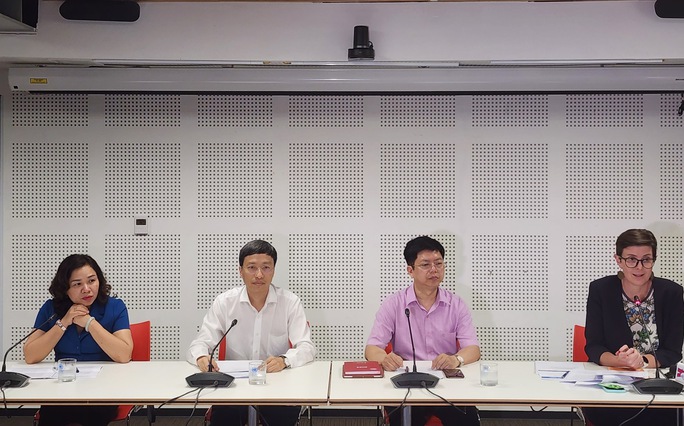On the afternoon of May 8th, the Ministry of Health, in coordination with the World Health Organization (WHO) in Vietnam, provided information on COVID-19 response measures following WHO's declaration of the end of the global health emergency, as well as necessary recommendations for Vietnam in future epidemic prevention and control efforts.
Speaking to the press, Dr. Angela Pratt, WHO Representative in Vietnam, stated that the current adaptation to COVID-19 has improved, the severity of transmission has decreased, and the number of hospitalizations and severe cases has also declined. "However, when the WHO declares COVID-19 no longer a global health emergency, it doesn't mean that COVID-19 is no longer a threat or less dangerous. We must not lower our guard against COVID-19," the WHO representative emphasized.
Responding to a question about whether it's time to view COVID-19 like seasonal flu, a WHO representative stated that while the two diseases do share some similarities, COVID-19 is not seasonal. Seasonal flu typically occurs in winter, but COVID-19 is not – a phenomenon we've seen in many countries. Furthermore, COVID-19 is still a very new disease. We've only been familiar with it for four years, while scientists have decades of research into influenza. Therefore, it's too early to consider COVID-19 the same as seasonal flu. Dr. Angela Pratt argued that this is not a time to "rest easy," as the number of cases continues to rise, there are still patients requiring intensive care, and there are still deaths. Therefore, despite high levels of community immunity from infection and vaccination, we must remain vigilant and implement appropriate disease prevention measures.

At a meeting on the afternoon of May 8th, health experts advised maintaining vigilance against COVID-19.
Regarding the WHO's statement, Professor Phan Trong Lan, Director of the Department of Preventive Medicine - Ministry of Health, stated that the risk assessment remains high globally, even though the number of cases and deaths has decreased worldwide, but there is still an increase in some regions. The SARS-CoV-2 virus itself is still mutating. In early April 2023, the WHO announced about 500 subvariants of Omicron, but by early May this year, the number of subvariants had exceeded 900.
Regarding the question of whether Vietnam will declare the end of the pandemic, Professor Phan Trong Lan stated that the country no longer has travel restrictions. The nature of SARS-CoV-2 means it can still travel through healthy individuals and overcome administrative barriers, therefore, COVID-19 prevention and control must be global in nature, not just a matter for one country or locality. In Vietnam, we have implemented appropriate responses to the epidemiological situation in each period. In particular, since October 2022, we have shifted to a safe, flexible, and effective control approach.
Professor Phan Trong Lan reiterated that the COVID-19 pandemic is difficult to predict, unpredictable, and is increasing in various regions. Currently, the disease is increasing in Southeast Asia, including Vietnam. Every day, Vietnam still records around 2,000 cases, including hospitalizations, severe cases, and even deaths. Approximately 10% of cases experience post-COVID-19 symptoms, which further increases the burden on the healthcare system.
Source










































































































Comment (0)